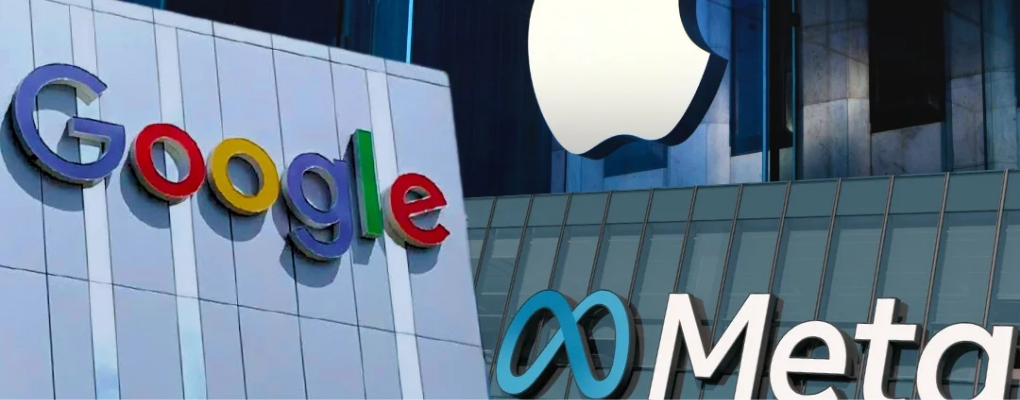The European Union has commenced inquiries into Apple, Google, and Facebook parent Meta, suspecting their non-compliance with a groundbreaking Europe
The European Union has commenced inquiries into Apple, Google, and Facebook parent Meta, suspecting their non-compliance with a groundbreaking European legislation aimed at fostering competition in digital services.
The European Commission has expressed suspicion that various practices of all three entities fail to meet the requirements of the Digital Markets Act (DMA), which became effective earlier this month. European Commissioner Thierry Breton cautioned that if the investigations uncover insufficient compliance, hefty fines could be imposed.
The DMA mandates dominant online platforms to provide users with greater alternatives and competitors with more avenues to vie for prominence. Presently, this regulation encompasses the three technology behemoths under scrutiny, along with Amazon (AMZN), Microsoft (MSFT), and ByteDance, the parent company of TikTok.
The list of entities under scrutiny could expand to include Elon Musk’s X and Booking.com by mid-May, as confirmed by the EU.
Breaches of the new law carry severe penalties, including fines of up to 10% of a company’s global revenue, escalating to 20% for repeated violations. For most of the entities subject to regulation, this could entail substantial financial ramifications, reaching tens of billions of dollars.
Among the practices under investigation by the European Commission is Meta’s “pay or consent” methodology. Last October, Meta (META) introduced a subscription service dubbed “Subscription for no ads,” enabling European users of Facebook and Instagram to opt for an ad-free experience for a monthly fee of up to €12.99 ($14).
“The Commission is apprehensive that Meta’s ‘pay or consent’ framework may not present a genuine alternative in the absence of user consent, thus failing to achieve the objective of curbing the aggregation of personal data by large corporations,” stated the regulatory body.
Responding to these allegations, a Meta spokesperson asserted, “Subscriptions as a substitute for advertising represent a well-established business model across numerous industries, and we formulated ‘Subscription for no ads’ to address several overlapping regulatory obligations, including the DMA. We remain committed to engaging constructively with the Commission.”
Furthermore, the EU is scrutinizing the app stores operated by Apple (AAPL) and Google. The DMA stipulates that major digital platforms, referred to as gatekeepers, must enable app developers to guide consumers to offers outside the dominant app stores, free of charge.
Among other reservations, the EU suspects that Apple and Google’s parent company Alphabet (GOOGLE) are impeding developers’ ability to freely communicate with end-users, promote offers, and directly conclude contracts by imposing various charges, as stated by the Commission.
“We are concerned that Alphabet, Apple, and Meta are falling short of their obligations; for instance, Apple and Alphabet continue to levy recurring fees on app developers,” remarked European Commissioner Margrethe Vestager.
Apple’s “choice screen” for Safari is also under scrutiny, as mandated by the DMA. Apple must prompt users with choice screens that effectively and effortlessly allow them to opt for an alternative default service, such as a browser or search engine, on their iPhones, noted the European Commission.
In response, Apple affirmed to CNN, “We are confident that our strategy aligns with the DMA, and we will continue to engage with the European Commission constructively throughout their investigations.”
Another area of concern for the Commission is Google Search. Alphabet may have failed to ensure that third-party services featured in search results are treated fairly and impartially compared to Alphabet’s services, such as Google Shopping and Google Flights.
Oliver Bethell, a competition executive at Google, emphasized, “To comply with the Digital Markets Act, we have implemented substantial changes to the operation of our services in Europe. We have actively engaged with the European Commission, stakeholders, and third parties through numerous events over the past year to receive and address feedback and to strike a balance between conflicting interests within the ecosystem. We will persist in defending our approach in the months ahead.”


COMMENTS